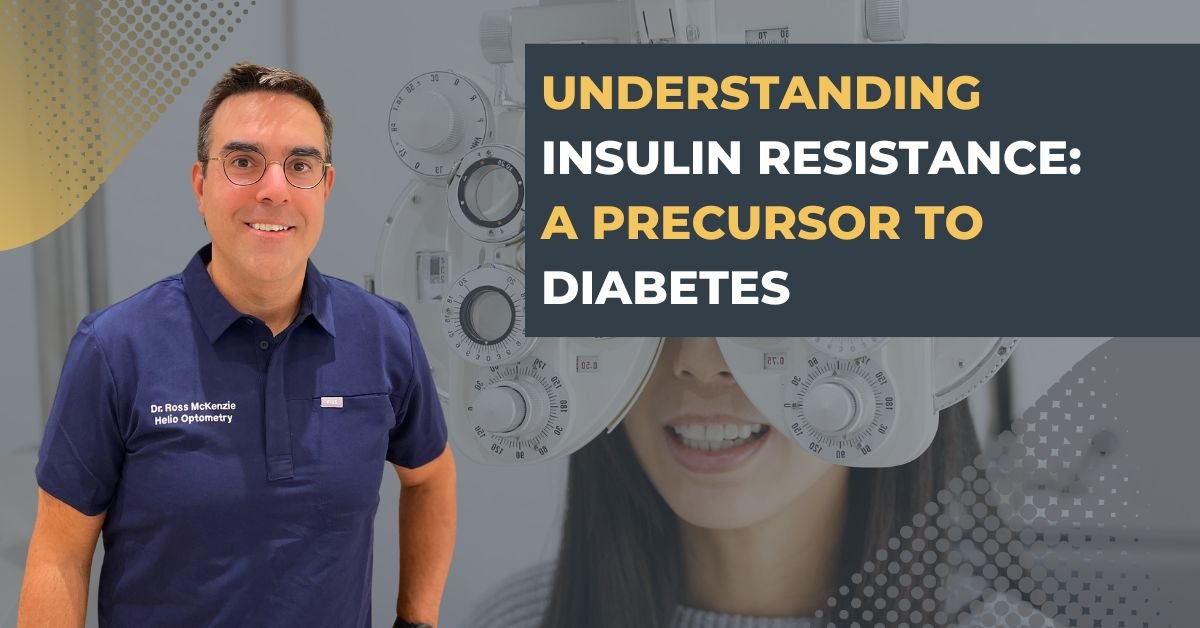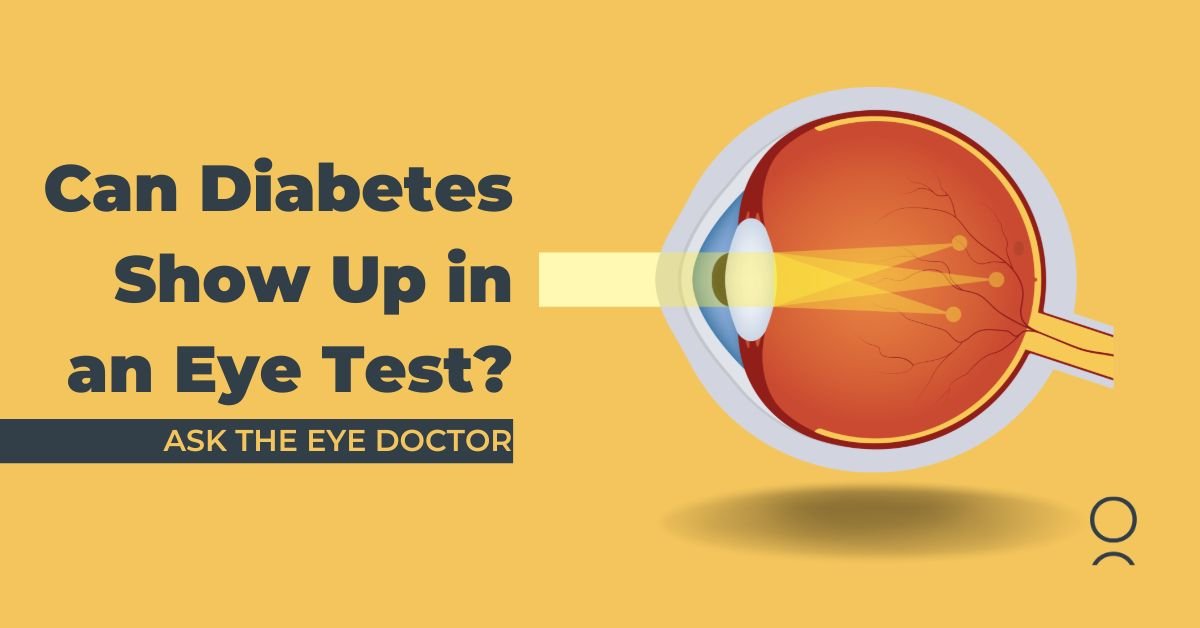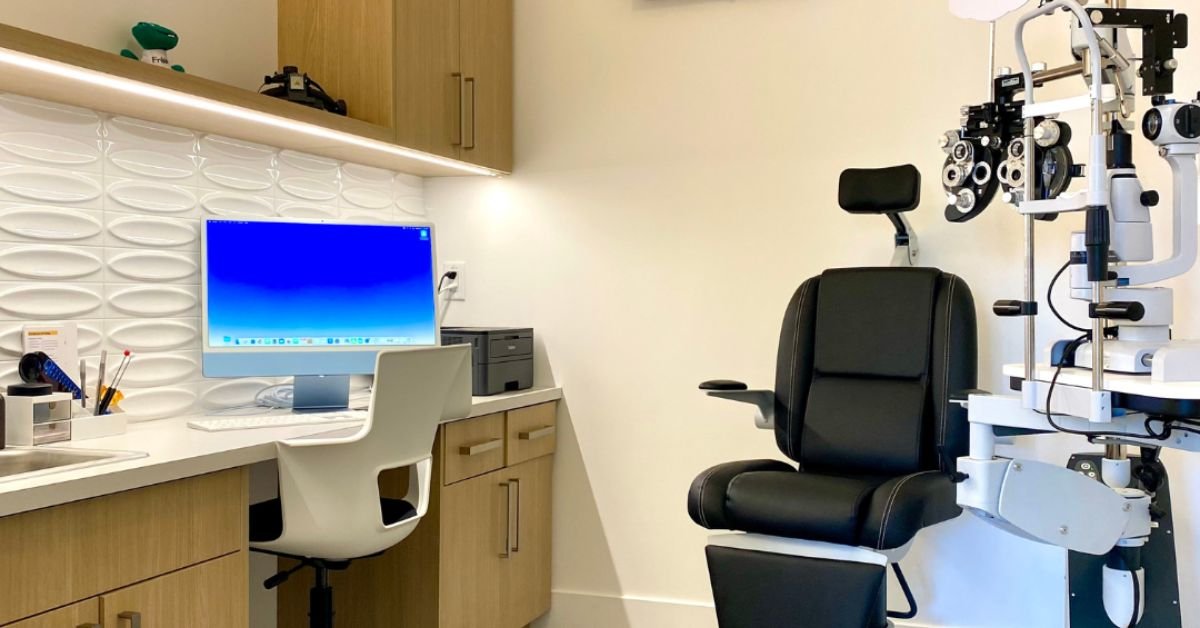The 5 Most Common Questions About Diabetes and Eye Health
As an optometrist, I regularly encounter patients who are either living with diabetes (Type 1 & Type 2) or are at risk of developing it. Understandably, many have concerns and questions about how diabetes can affect their eye health.
Today, I'd like to address the five most common questions I get asked on this topic:
Question #1: Can vision loss from diabetes be prevented?
The straightforward answer is yes, in many cases. Early detection and consistent management of diabetes can play a significant role in preventing vision loss. Regular eye exams can identify early signs of diabetic eye disease, and prompt treatment can stop or slow the progression. Moreover, maintaining a balanced diet, regular exercise, and adhering to prescribed medications can further reduce the risk. There is no 'good' type of diabetes, so it's important to take the time to make sure that you're doing everything correctly.
Question #2: What factors contribute to diabetic retinopathy?
Diabetic retinopathy is one of the leading causes of blindness in adults. It is a direct result of damage to the tiny blood vessels in the retina caused by high blood sugar levels. Several factors can elevate the risk, including the duration of diabetes, inconsistent (fluctuating) blood sugar control, high blood pressure, high cholesterol, pregnancy, and tobacco use.
Question #3: Can diabetes cause cataracts?
Yes, individuals with diabetes are at a higher risk of developing cataracts at a younger age than those without the condition. A cataract is a clouding of the eye's lens, leading to decreased vision. Fluctuating blood sugar levels can cause changes in the eye's lens, leading to the development or progression of cataracts. People with diabetes are more susceptible to a specific type of cataract called a PSC or Posterior Subcapsular Cataract, which can develop very quickly.
Question #4: What should my blood sugar levels be at to prevent diabetic retinopathy?
Maintaining blood sugar levels within the target range set by your doctor is crucial. For many, the aim is to have an A1C level below 7%. This is a test that gauges your average blood sugar over the previous two to three months. However, it's essential to work closely with your family doctor or diabetes specialist to determine the best range for you. It's also necessary to routinely check your blood sugar levels at home to ensure that things stay on track. Your diabetic specialist can tell you how often you should be doing this or even if you should use a continual glucose monitoring system.
Question #5: Is there a difference between Type 1 and Type 2 diabetes regarding diabetic retinopathy?
Both Type 1 and Type 2 diabetes can lead to diabetic retinopathy. The risk increases the longer someone has diabetes. However, individuals with Type 1 diabetes usually develop the condition at a younger age and, if not managed, may experience more severe forms. On the other hand, due to the later onset and often delayed diagnosis of Type 2 diabetes, some individuals may already exhibit signs of retinopathy at the time of their diabetes diagnosis.
Bonus Question: Optometrist or Ophthalmologist for Diabetic Eye Exams?
Both optometrists and ophthalmologists are trained to diagnose and manage diabetic eye diseases.
An optometrist can perform a comprehensive dilated eye exam, crucial for detecting diabetic retinopathy in its early stages. They can monitor for changes, provide essential eye care advice, and prescribe corrective lenses if required.
However, if there are complications or advanced stages of diabetic eye disease, an optometrist will refer you to a retinal specialist. Retinal specialists are ophthalmologists who specialize in treating diabetic eye disease. For the most part, general ophthalmologists do not treat diabetic eye disease and perform the same diabetic eye tests as an optometrist.
Most people diagnosed with diabetes in Alberta see their optometrist for their annual diabetes eye health exam. Alberta Health Care covers diabetes eye health exams, so there is no cost to you. These eye exams include reviewing your current medical history and medications, dilated retinal examination, and additional testing such as optomap ultrawide field imaging or 3D OCT retinal scans to look for signs of clinically significant macular edema and glaucoma.
In Conclusion
While Type 1 and Type 2 diabetes pose several challenges to eye health, awareness and proactive management are your best defences. If you have diabetes or are at risk, I cannot stress enough the importance of regular eye exams with an optometrist. They are not just about vision correction but about safeguarding one of your most valuable senses.
Check Out Some Other Articles









